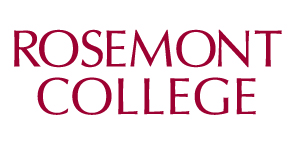Counseling Center FAQs
Q: What happens in a counseling session?
A: During the first few sessions, you and your counselor will take time to get to know each other. Your counselor will ask you questions about yourself and the reasons that you are seeking counseling. You and your counselor may also discuss your goals for counseling and brainstorm strategies that may be helpful in improving your symptoms. Since you are the expert on yourself, you will decide how therapy moves forward and what you would like to focus on. You and your counselor will work at a pace that is comfortable for you and in a way that meets your needs.
While no two counseling sessions look the same, some examples of what may take place during a session are:
- Speaking with your counselor about your thoughts, feelings, and experiences
- Addressing stressors that arose since your last session
- Discussing ways to effectively cope with anxiety and depression
- Examining ways to think more positively
- Practicing relaxation skills
- Working to improve relationships
- Acquiring information about community and campus resources
Q: Who can use the Rosemont College Counseling Center services?
A: Counseling Center services are available to all undergraduate and graduate students enrolled at Rosemont College.
Q: How much do the services cost?
A: All Counseling Center services are free of charge.
Q: Where is the Counseling Center?
A: The Counseling Center is located in the Immaculate Conception Chapel, Lower Level, Room #9.
Q: What are the Counseling Center’s hours?
A: The Counseling Center is open on Monday – Friday from 9:00 a.m. - 4:00 p.m. throughout the academic year. The Counseling Center is closed on college holidays and has limited availability during the summer months. Feel free to email us counselingcenter@rosemont.edu or to call the Center (610-527-0200 ext. 2416) if you have any questions about our availability.
Q: Do I have to make an appointment?
A: In order to ensure that a counselor is available to meet with you, we highly suggest that you make an appointment. Please contact us by email at counselingcenter@rosemont.edu or telephone (610-527-0200 ext. 2416) to schedule an appointment. If you wish to contact a specific counselor or to learn more about Counseling Center staff, please click on the “Staff” tab to email a counselor directly.
While scheduling an appointment is highly recommended, students are welcome to stop by the Counseling Center during operating hours. In the event that a counselor is available, students can be seen on a walk-in basis. If a counselor is not available, an appointment will be made for the student to meet with a counselor at a later time. The Counseling Center is located in the Immaculate Conception Chapel, Lower Level, Room #9.
If you are experiencing an emergency, please contact Public Safety (610-527-1038) or call 911.
Q: Will anyone know if I meet with a counselor?
A: It depends. Your meeting with a counselor is strictly confidential. However, with your permission, there are times when a counselor might ask you to sign a release to speak with someone else such as an outside therapist, a medical doctor, or another professional who could be of help to you.
Additionally, if you are mandated to see a counselor because of a judicial sanction from the Residence Life department, the Counseling Center will have to communicate that you have completed your required program.
With all that said, the specifics of what you say in a counseling session are confidential and will be released ONLY with a student’s written permission or with the following exceptions, as required by law: if there is imminent danger to self or others, suspicion of child or elder abuse, or court subpoena.
Q: How many times can I see a counselor?
A: You and your counselor will work together to determine how long you would like to remain in counseling. Sometimes, a concern can be addressed in just a few sessions. Other times, you may wish to remain in counseling for a longer period of time. The important thing is that there is no limit on the number of sessions that you can attend, meaning that you may attend counseling as little as one session or for as many sessions as you and your counselor decide will be helpful.
Do I have to be experiencing a “problem” to visit the Counseling Center?
A: No. Whether or not you are facing a particular concern, counseling can help you to learn more about yourself, consider different perspectives, explore your relationships, set healthy goals, learn new skills, improve your communication, and more!
